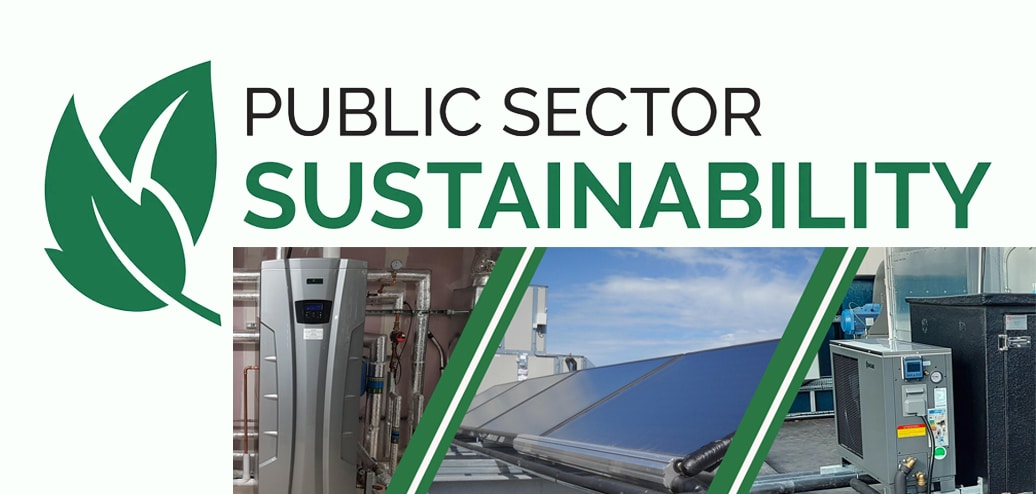The march to produce a sustainable public sector is generating a wealth of challenges for organisations, not least where to begin making a difference now. At Adveco we would argue for starting with water heating.
The provision of domestic hot water (DHW) applications can be a major source of energy demand for public sector organisations. Accounting for as much as 30% of a property’s total daily energy usage, water heating regularly contributes to carbon emissions and increased running costs. From education to healthcare, it is also a necessity for day-to-day operations.
Addressing how hot water is generated to meet demands is a sensible place to begin tackling net zero issues, reducing energy usage and emissions in a practical real-world manner that sets an agenda for positive investment in sustainability. Whether the project is a new build or refurbishment of an older property sustainability gains can be achieved right now without addressing the fabric of the building.
Adveco is the specialist in domestic hot water applications (DHW) for commercial-scale projects. This places us right in the centre of the sustainability mix, helping address carbon reduction and air quality through improved energy management/reduction, and leading the charge in innovating application designs that leverage renewable solar and air-source heat pumps as part of wider electrical and mechanical projects. Whether embracing new low-carbon building projects or supporting public sector organisations with legacy buildings and infrastructure that want to introduce greater sustainability, we are positioned to support these goals. A very large proportion of our work, as a result, is bespoke and, as an independent company, we can recommend the best possible choice of appliances for optimal provision of business-critical hot water services.
We are committed to partnering with customers to create a more sustainable public sector, providing invaluable support from a single entity for the design, supply and then service of our applications, providing consistency from inception and on through the operational life. This is especially valuable as it places focus on reducing carbon and controlling costs not only in terms of capital investment but also for operational expenditure. It also means we can advise and adjust to adapt to new technologies as they become available and can be shown to have a practical advantage in striving for net zero by 2050.
Today, our applications are primarily built around air source heat pumps, solar thermal, electric and gas-fired water heaters and boilers. A wide range of thermal storage vessels and ancillaries support bespoke and hybrid system designs for new build and refurbishment projects. We can also bring all this technology together into either bespoke or pre-sized prefabricated hot water plant rooms. These are constructed off-site at our facilities and delivered ready for immediate installation, minimising the onsite requirements for plumbing and electrical connections. A plant room can now be delivered, installed and operational in a matter of days and often makes use of unused and wasted space, from rooftops to waste ground.
Looking forward, especially for those building already on gas, there is a strong potential for hydrogen blend and truly green hydrogen-based systems that hold the potential to take us to net zero faster and with less physical alteration to existing buildings. That translates to lower-cost implementation and a ready familiarity with operating and maintaining services. Most modern gas appliances will already be capable of accepting the intended 20% hydrogen/natural gas blend currently being tested for the grid, whilst a 100% hydrogen blend will form the second-generation approach as services roll out nationally through the late 2030s and 2040s.
A truly sustainable public sector will therefore be a longer-term project, but that doesn’t mean we can sit on our laurels. Every organisation can begin to make changes now that will have a more profound impact as we move closer to the 2050 deadline, small changes quickly aggregate into major shifts in the way you and your staff think and operate.
Much focus has been placed on space heating, but, if this past summer heat wave is not an aberration but a symptom of global warming as most claim, then focus will inevitably shift from heating to cooling and indoor air quality (IAQ). Water heating however remains the exception that makes year-round demands on business no matter the weather conditions. For many, it is a necessity for day-to-day operations. Hot water provision is a major source of energy demand for some organisations, so if you are trying to decide where to begin investing efforts toward greater sustainability, water heating is going to be a good starting point. Addressing how hot water is generated to meet demands is a really sensible place to begin tackling sustainability issues, reducing energy usage and emissions in a practical, real-world manner right now and setting the agenda for positive investment in sustainability.
Perhaps the best advice we can give right now for existing buildings is to assess your water demand by metering it accurately. This is best achieved by placing flow and temperature sensors across a system and recording real-world data. It’s a cost-effective and highly valuable way of assessing demands and avoiding system oversizing. With gas-fired systems oversizing has been a common occurrence, but the capital cost variation was minimal. However, you do get hit with additional operational costs. When gas is partially or completely replaced with like-for-like renewables the additional capital costs of an oversized system can be eyewatering, and that is before considering the heightened operational costs of running all electric systems. Balanced approaches that combine existing gas-fired water heaters with 30-40% renewables may be gaining traction as a way to successfully introduce sustainability, but accurately surveying your system demands first is paramount.
This all pays dividends, it is better for the environment, staff and clients, and it’s good for organisations to be seen to be making a real investment in the future. Plus, you gain more modern, efficient and potentially more cost-effective building services which all help with the bottom line.
Adveco’s hybrid and bespoke designs ensure carbon reduction strategies while delivering a cost-effective lifetime investment for a sustainable public sector. One that is also future-proofed to meet the demands of evolving renewable technologies which will become key to achieving net zero by 2050.
Talk to us at the Public Sector Sustainability Event in Manchester on November 1st 2022.
 If you have any questions about public sector sustainability and how Adveco can help you, get in touch with our team of experts.
If you have any questions about public sector sustainability and how Adveco can help you, get in touch with our team of experts.
Call us on 01252 551 540 or complete the easy contact form and we’ll discuss your commercial hot water requirements.













